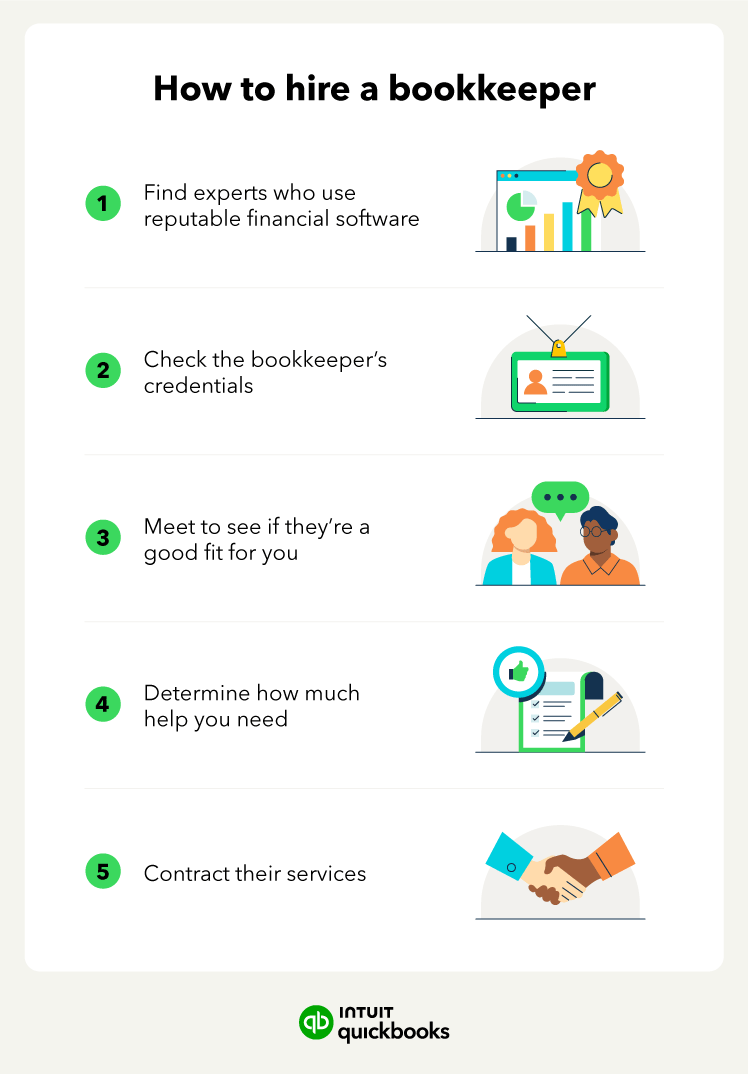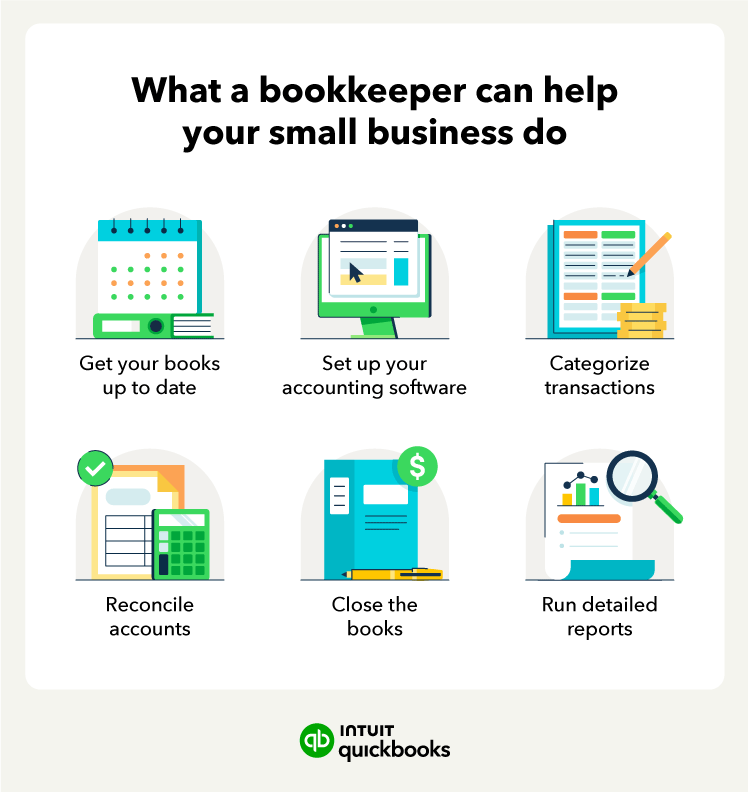Step 3. Check the bookkeeper's credentials
Unlike accountants, small business bookkeepers don't need higher education or graduate degrees to do their jobs. However, there are certifications and online bookkeeping courses that a bookkeeper can complete to show their understanding of bookkeeping, basic accounting principles, industry knowledge, and financial software. These credentials aren't required, but knowing a third party has given their stamp of approval can help you feel more confident when hiring a bookkeeper.
Here’s what to look for when checking a bookkeeper’s credentials:
NACPB or AIPB membership
Certification from the National Association of Certified Public Bookkeepers (NACPB) or the American Institute of Professional Bookkeepers (AIPB) reflects a strong foundation in bookkeeping and ongoing professional development.
QuickBooks ProAdvisor certification
If you use QuickBooks, this certification is especially valuable. It means the bookkeeper has been trained and tested by QuickBooks, so they’re equipped to help you get the most out of the software. You can verify their certification through the QuickBooks ProAdvisor directory.
Business license or registration
While not required, being licensed or registered as a business adds professionalism and credibility.
Ongoing training
Look for proof of continuing education, such as recent webinars or courses, especially on software updates or regulatory changes.
Defined services and availability
A good bookkeeper should clearly outline their services (e.g., reconciliations, payroll, tax prep support) and let you know how and when they’ll be available.
Skills and traits to look for in a bookkeeper
Not all credentials are tangible. There are crucial skills and traits a bookkeeper should have that aren't backed by a certification. When you trust someone to reconcile credits and debits or categorize transactions, you want them to possess the following qualities:
Accurate
Bookkeepers must be precise. Even small errors can lead to bigger financial issues, so attention to detail is critical for maintaining clean and reliable records.
Organized
Managing receipts, reconciling accounts, and meeting deadlines requires sharp organizational skills. A well-organized bookkeeper keeps your finances in order and accessible.
Trustworthy
Bookkeepers handle sensitive financial data, so integrity and discretion are non-negotiable. You need someone who respects confidentiality and acts ethically.
Communicative
They should be able to explain financial information in plain terms and respond quickly and clearly to questions and concerns from you, your team, or your accountant. Look for signs early on, like timely, professional, email responses to your initial inquiries.
Analytical
Great bookkeepers not only record numbers, they can understand what they mean. They can spot patterns and catch inconsistencies. They are adept at preventing and resolving issues before they escalate.
Resilient
Bookkeeping isn’t always smooth sailing, especially around tax time. A resilient bookkeeper can handle pressure, tackle last-minute changes, and keep things on track when deadlines loom.
Adaptable
Regulations change. Business needs shift. A bookkeeper should be flexible, learn new tools when necessary, and stay current on compliance rules so your records stay accurate and your business stays audit-ready.
Efficient
Bookkeepers juggle many tasks. Effective time management ensures everything gets done accurately and on schedule.
Dependable
Reliability, consistency, and a strong work ethic are the foundation of any successful bookkeeping relationship. You need someone who shows up and follows through.
Experienced
Nothing replaces experience. Search out bookkeepers with several years in the field and positive reviews from clients and accountants who look over bookkeepers' work. These can be signs that your bookkeeper is knowledgeable and competent.














